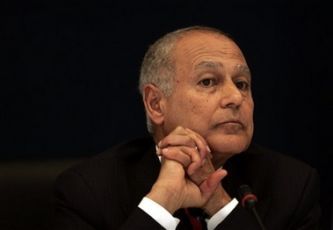Ex-FM of Egypt says opposed to joining ICC, will force country to arrest Bashir
March 31, 2013 (WASHINGTON) – The former foreign minister of Egypt Ahmed Aboul-Gheit said that any move by Cairo to ratify the founding treaty of the International Criminal Court (ICC) will hurt the country’s interests.

“This makes me touch on my objection to joining the International Criminal Court because under the confused conditions in the world, especially in the African region which is full of injustice, war and oppression this will generate obligations on the Egyptian state that could harm our interests,” Aboul-Gheit told state-owned al-Ahram newspaper in an interview published Sunday.
“For example, in the event that President Bashir seeks asylum in Egypt we will then have to hand him over [to the ICC]” he added.
Last month the Egyptian justice minister Ahmed Mekki said that the government will soon join the ICC after figuring out a workaround to the issue of Sudanese president Omer Hassan al-Bashir who is wanted by the Hague-based court on ten counts of war crimes, crimes against humanity and genocide allegedly committed in Darfur.
The justice minister said that Egypt “could sign a bilateral agreement with Sudan to overcome this obstacle for the sake of joining the court to put Egypt among the countries that respect human rights”.
Mekki was referring to Article 98 of the Rome Statute which states that “the court may not proceed with a request for surrender or assistance which would require the requested State to act inconsistently with its obligations under international law with respect to the State or diplomatic immunity of a person or property of a third State, unless the Court can first obtain the cooperation of that third State for the waiver of the immunity”.
The United States, a non-ICC signatory, is the only country so far to have resorted to this controversial method and signed bilateral immunity agreements with over 100 states to avoid the possibility of dragging its troops to the court while being deployed abroad.
However, it remains to be seen whether Sudan will even agree to such an arrangement which could be interpreted as a recognition on its part of the court’s jurisdiction.
Under Mubarak Egypt was one of the first nations to receive Bashir after the arrest warrant for him was issued.
Aboul-Gheit himself at the time challenged the ICC to arrest the Sudanese leader.
“The ICC will not be able to force on the government in Sudan to cooperate with its decision and this is clear” the then foreign minister said.
Ironically the Sudanese president singled out Aboul-Gheit for criticism after Mubarak’s political demise saying he worked with former Libyan foreign minister Moussa Koussa to undermine the Darfur peace process.
“We endured a lot of harm [from both countries]” Bashir was quoted as saying by the pro-government Al-Raed newspaper exactly two years ago.
(ST)
